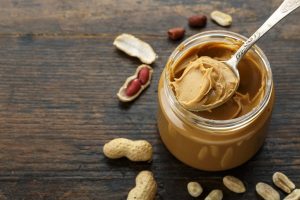 The best part of an overall healthy diet is that you don’t really have to worry about eating more of this and less of that. The nutrients and benefits just seem to fall into place.
The best part of an overall healthy diet is that you don’t really have to worry about eating more of this and less of that. The nutrients and benefits just seem to fall into place.
But sometimes you might want to make a conscious decision to eat more of certain nutrients for the potential of a little something extra.
Advertisement
Tryptophan is a widely known amino acid that gets its name from helping people relax and inducing sleep. And although it likely undeservedly gets the blame for the post-Thanksgiving nap (you probably just ate too much), there is some meat to the link.
Eating tryptophan-rich foods can make you feel more relaxed and ready for a nap because it increases relaxation hormones like serotonin and melatonin. And while a little bit might not make much of a difference, a huge helping could make you feel a little more tired earlier than usual.
But the benefits might not stop there. A recent study has found that along with promoting relaxation and potentially better sleep, tryptophan may also help protect against inflammation in advanced age.
The study, published in May in the International Journal of Molecular Sciences, found that high levels of tryptophan may encourage a stronger and more diverse population of gut bacteria and protect against inflammation.
There is one major caveat, however. The research was conducted on mice, meaning it’s entirely possible that the same benefits may not occur in humans.
But let’s think about it for a second. If you’re eating a “high tryptophan” diet, it means you’re eating a lot of food that is both associated with lower inflammation and good for gut health.
Advertisement
Remember, a healthy diet takes care of the nutrients you need.
So, what are some high tryptophan foods you can include in your diet?
Try snacking on peanut butter or pumpkin seeds. It’s also in turkey and salmon, as well as healthy greens like spinach and edamame.
